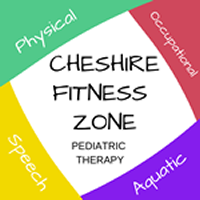Dynamic Movement Intervention
Intensives help form new neuronal connections crucial for motor skill development
Dynamic Movement Intervention (DMI) is a therapeutic technique used in physical and occupational therapy to assist children with motor delays in enhancing their automatic postural responses and achieving developmental milestones. DMI’s primary objective is to provoke targeted active motor responses from the child through precisely designed dynamic exercises prescribed by a therapist. This approach promotes neuroplasticity, facilitating the formation of new neuronal connections crucial for motor skill development.
Our intensive programs are customized for each child, informed by collaborative discussions, individual goals, initial assessments, and valuable input from parents and ongoing therapists. We concentrate on various aspects of development, including static and dynamic balance, motor planning, and other impairments, enabling children to progress from fundamental skills like rolling to more complex walking abilities. DMI is particularly effective for children with diagnoses such as cerebral palsy, Down syndrome, spina bifida, and acquired brain injuries.
Frequently Asked Questions
Explore our FAQs to find quick answers to common questions about our service.
What is DMI?
“Dynamic Movement Intervention (DMI) is a therapeutic technique used in physical and occupational therapy to treat children with motor delay by improving automatic postural responses and promoting progress toward developmental milestones. The goal of DMI is to provoke a specified active motor response from the child in response to defined dynamic exercises prescribed by the therapist. This comprehensive intervention incorporates current research on neurorehabilitation, technologies, and methodologies. DMI stimulates neuroplasticity to facilitate new neuronal connections and development of motor milestones.”
– DMITherapy.com
What are intensives?
Intensive therapy programs deliver services to children at an increased frequency, enabling them to achieve significant progress toward the goals established by families and therapists. By enhancing the frequency of sessions, we can facilitate quicker advancements in a shorter timeframe. Each intensive program is tailored to the individual child, taking into account initial assessments, discussions with parents, and insights from ongoing therapists. We focus on a range of areas, including static and dynamic balance, motor planning, and other challenges, helping children develop skills from rolling to advanced walking. Our use of massed practice promotes neuroplasticity, empowering our patients to acquire new gross motor skills effectively.
What should I do if my child becomes upset during a technique or intensive?
It’s not uncommon for children to experience frustration or tears during intensive therapy, especially when engaging in challenging handling techniques. While witnessing this can be difficult, it’s important to remember that these techniques are designed to build strength and enhance body awareness and organization. As your child progresses, their overall tolerance will improve. During these moments, offering your child support and reassurance, while also encouraging the therapist’s efforts, can be incredibly helpful. Children are perceptive; your positive reinforcement of the process will help them feel more at ease throughout their therapy journey.
Once the intensive is complete, how can we continue to support my child’s skills?
At the conclusion of our intensive program, we provide each child with a personalized written home exercise program (HEP) tailored to their specific needs. This program is thoroughly reviewed and practiced with parents on the final day of the intensive to ensure understanding and proper implementation. We also collaborate closely with ongoing therapists to communicate what skills were worked on, the progress made, and the details of the HEP provided to families. If desired, we welcome B23 providers to join a session with prior notice from parents.
What should I bring for my child during the intensive?
To ensure a smooth and enjoyable experience for your child during the intensive, please bring the following items:
- Snacks for breaks
- Comfortable shoes for various activities
- Any preferred toys that have proven effective in motivating your child at home or during therapy sessions
- A bathing suit and swim diaper (if your child is suitable for aquatic therapy)
Who can benefit from DMI?
Dynamic Movement Intervention (DMI) may be especially beneficial for children with one or more of the following diagnoses. If you have questions or would like further insights, please don’t hesitate to reach out or discuss with your treating provider:
- Cerebral palsy
- Down syndrome
- Chromosomal abnormalities
- Genetic disorders
Spina bifida - CVA/Stroke/Hypoxic Ischemic
- Encephalopathy (HIE)
- Other spinal cord lesions
- Acquired brain injury
- Arthrogryposis
- Premature infants
- Angelman syndrome
- Periventricular leukomalacia
- Cytomegalovirus
- Undiagnosed global developmental delays, including but not limited to patients with:
– Hypotonia, dystonia, hypertonia, or mixed tone
– Delayed gross motor skill attainment
– Global muscle weakness
New Patient Application
If you are a new patient, use the button below to open our New Patient Application form.
Returning Patient Application
If you are a returning patient, use the button below to open our New Patient Application form.
What Clients Are Saying
“I can’t sing their praises enough. The patience and drive they have, and the love for what they do really show through. They have changed my daughter’s life already and we have only just begun. Transitioning my child to Cheshire Fitness was the best decision I made. Bri, Val, and the whole team are nothing but amazing.”
“The DMI intensive week was a game changer for my kiddo. I would 100% participate in it again as it gave my girlie a big jumpstart that she needed to engage her core and legs. The difference from Monday to Friday – I mean wow. She went from not being able to lift herself up to being able to sit independently for 2.5 minutes and use her core to stand up straight. She gets stronger everyday as we continue our “homework” and countdown the days until we get to do it again!”
Explore Our Pediatric Therapy Services
At Cheshire Fitness Zone, we offer a full range of pediatric therapy services designed to help children reach their fullest potential — including Physical, Occupational, Speech, Aquatic, and Feeding Therapy programs.
